#tilney family
Text
The Tilney Family Album: Volume XVII

Time to meet the nooboo!

As it happened, Eleanor was already pregnant when the alien menace whisked her away, and the baby boy is Esther's, with her deep blue eyes. They name the new arrival Ellis.
(I confess I was a little disappointed by the lack of alien progeny, but I guess there’s still time!)

What more could Esther want from life? She has just married the love of her life, and now she's a mother too!

The new parents take it in turns to stay at home with their young son. One afternoon - shortly after Eleanor has put Ellis down for his nap - the family has an unexpected visitor. Lillian - the fiancée of Eleanor's cousin Nathan - drops in while mysteriously in character.

She's not really known to the family, but it seems that Lillian just happened to be in that part of town, and decided to take the opportunity to introduce herself. And wake up the baby.

Being the curious soul that she is, Eleanor can't help wanting to know just how much Lillian identifies with her llama persona?

Lillian tries to explain that it's not so much about being a llama, as channelling the ineffable spirit of llamaness into everyday life. Well, it's certainly an interesting philosophy.

Lillian has fortuitously coincided her visit with Ellis's first birthday.

No, it's not just Ellis's stinky nappy that is causing Eleanor's nausea...

There's another unexpected arrival, and this time it's a new baby sister for Ellis - welcome to the family, Esme!

He's quite happy to have a new sibling, but can't wait for her to grow up a bit, so that they can play together properly.

~ Gemini 5 / 5 / 4 / 3 / 9
~ Friendly / Slob
~ OTH: Games

Perhaps as a result of being exposed to Lillian's extravagant headgear at such a young age, he also won't do anything or go anywhere without his green monster hat.
#sims 2#gameplay#merybury#sanditon#eleanor tilney#esther dashwood#ellis tilney#esme tilney#lillian bryant#tilney family
20 notes
·
View notes
Text
The new queen's white falcon was on prominent display throughout the pageant, resting on a bed of Tudor roses. Although it is now synonymous with Anne and the Boleyns in general, Henry had only granted it to her on her elevation to the marquessate of Pembroke. It was a fitting choice because the same bird had long been an emblem of Anne's Irish ancestors, the Butlers, earls of Ormond. It also had strong royal associations and had been used as an emblem by the celebrated warrior king Edward III, as well as by Henry's maternal grandfather, Edward IV, with whom he strongly identified.
Anne Boleyn & Elizabeth I (2023), Tracy Borman
#tracy borman#anne boleyn#no one ever mentions this but yeah it edward iv's symbol which#probably another interplay with henry utilizing symbols and titles of his family to relay significance#(pembroke and richmond etc)#for anne this means lancastrian (pembroke) and yorkist (falcon in the fetterlock specifically was edward iv's symbol iirc)#interesting bcus like most her own lineage had ties to both#elizabeth tilney was yorkist and william boleyn seems to have survived the cull of transfer between powers#(falcon with the open fetterlock#sorry... insignia? is that the right word?)#badge? whichever. he used it .#it seems to have originated with the first duke of york (edmund of langley)#henry viii#henrician#1530s#*most nobles
48 notes
·
View notes
Text
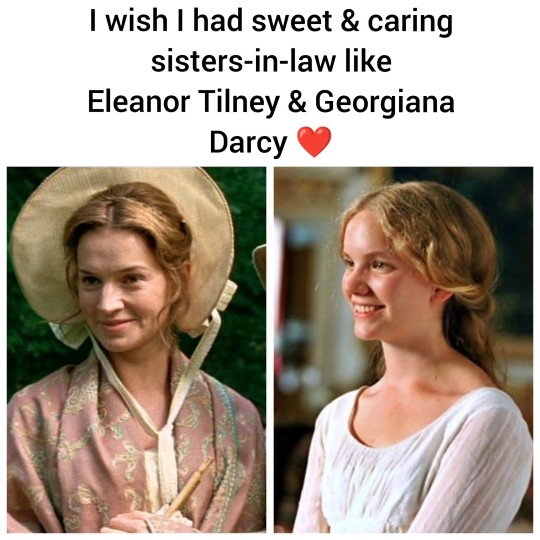
#northanger abbey#eleanor tilney#northanger abbey memes#northanger abbey 2007#mr darcy'sister#georgiana darcy#prideandprejudice#pride and prejudice#jane austen#janeite#pride and prejudice 2005#jane austen confession#pride and prejudice meme#Catherine Walker#Tamzin Merchant#austenconfession#jane austen characters#jane austen meme#jane austen memes#family#sister in law
60 notes
·
View notes
Text
I love the last sentence of this bit from chapter 25 of Northanger Abbey, where Catherine is speaking to Henry and Eleanor Tilney (emphasis mine):
“I do not believe Isabella has any fortune at all: but that will not signify in your family. Your father is so very liberal! He told me the other day that he only valued money as it allowed him to promote the happiness of his children.” The brother and sister looked at each other.

#siblings being siblings#northanger abbey#catherine morland#henry tilney#eleanor tilney#general tilney#jane austen#the addams family#wednesday addams#pugsley addams#gif
165 notes
·
View notes
Text
𝐈𝐧𝐭𝐞𝐫𝐧𝐚𝐭𝐢𝐨𝐧𝐚𝐥 𝐌𝐞𝐝𝐢𝐞𝐯𝐚𝐥/𝐀𝐧𝐜𝐢𝐞𝐧𝐭 𝐖𝐨𝐦𝐞𝐧 𝐨𝐟 𝐑𝐨𝐲𝐚𝐥/𝐍𝐨𝐛𝐥𝐞 𝐃𝐲𝐧𝐚𝐬𝐭𝐢𝐞𝐬, 𝐅𝐚𝐦𝐢𝐥𝐢𝐞𝐬, 𝐇𝐨𝐮𝐬𝐞𝐬 , 𝐚𝐧𝐝 𝐂𝐥𝐚𝐧𝐬 (𝟏/?)
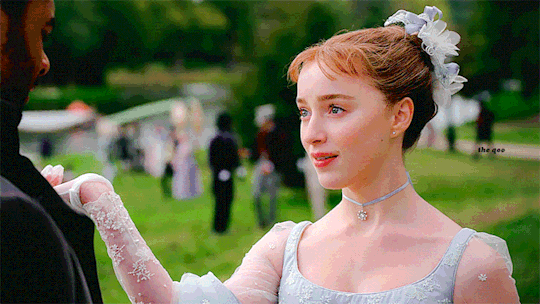

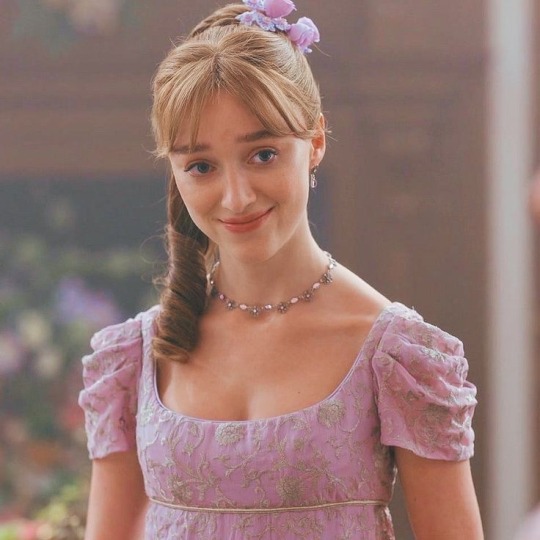
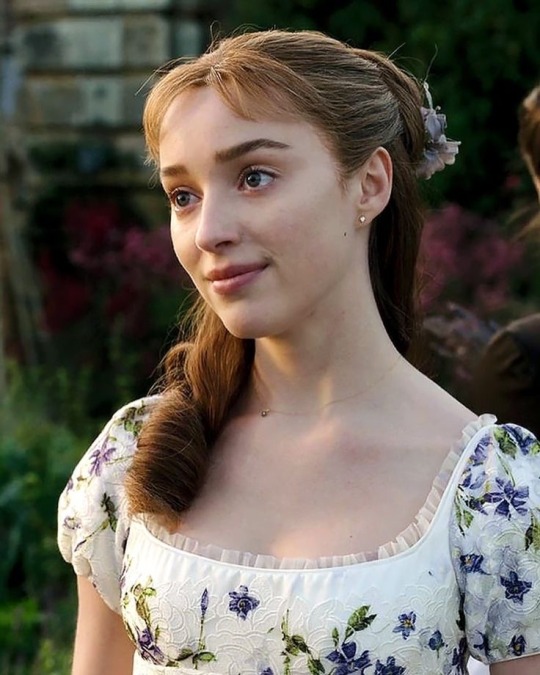
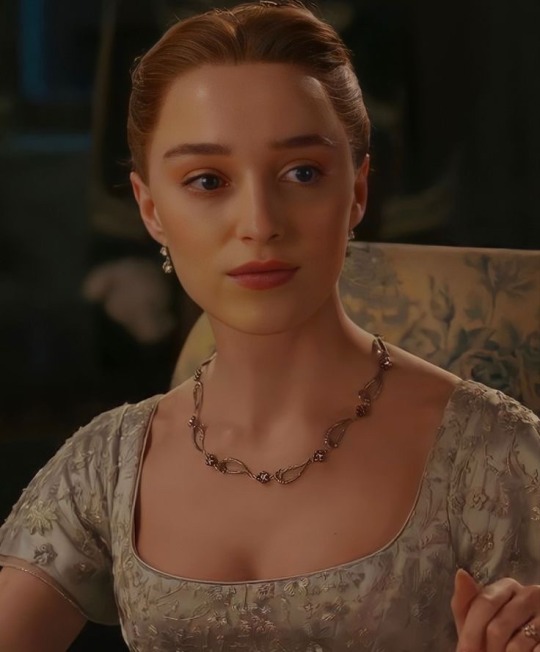

𝐄𝐥𝐢𝐳𝐚𝐛𝐞𝐭𝐡 𝐓𝐢𝐥𝐧𝐞𝐲, 𝐂𝐨𝐮𝐧𝐭𝐞𝐬𝐬 𝐨𝐟 𝐒𝐮𝐫𝐫𝐞𝐲 (𝐛𝐞𝐟𝐨𝐫𝐞 𝟏𝟏𝟒𝟓- 𝟒 𝐀𝐩𝐫𝐢𝐥 𝟏𝟒𝟗𝟕)
𝐃𝐚𝐮𝐠𝐡𝐭𝐞𝐫 𝐨𝐟 𝐒𝐢𝐫 𝐅𝐫𝐞𝐝𝐫𝐢𝐜𝐤 𝐓𝐢𝐥𝐧𝐞𝐲, 𝐋𝐨𝐫𝐝 𝐨𝐟 𝐀𝐬𝐡𝐰𝐞𝐥𝐥𝐭𝐡𝐨𝐫𝐩𝐞, 𝐍𝐨𝐫𝐟𝐨𝐥𝐤 𝐚𝐧𝐝 𝐁𝐨𝐬𝐭𝐨𝐧, 𝐋𝐢𝐧𝐜𝐨𝐥𝐧𝐬𝐡𝐢𝐫𝐞, 𝐄𝐧𝐠𝐥𝐚𝐧𝐝 𝐚𝐧𝐝 𝐄𝐥𝐢𝐳𝐚𝐛𝐞𝐭𝐡 𝐂𝐡𝐞𝐧𝐞𝐲, 𝐋𝐚𝐝𝐲 𝐒𝐚𝐲
𝐖𝐢𝐟𝐞 𝐨𝐟 𝐒𝐢𝐫 𝐇𝐮𝐦𝐩𝐡𝐫𝐞𝐲 𝐁𝐨𝐮𝐫𝐜𝐡𝐞𝐢𝐫 𝐚𝐧𝐝 𝐓𝐡𝐨𝐦𝐚𝐬 𝐇𝐨𝐰𝐚𝐫𝐝, 𝟐𝐧𝐝 𝐃𝐮𝐤𝐞 𝐨𝐟 𝐍𝐨𝐫𝐟𝐨𝐥𝐤
𝐌𝐨𝐭𝐡𝐞𝐫 𝐨𝐟
𝐉𝐨𝐡𝐧 𝐁𝐨𝐮𝐫𝐜𝐡𝐞𝐢𝐫, 𝟐𝐧𝐝 𝐁𝐚𝐫𝐨𝐧 𝐁𝐞𝐫𝐧𝐞𝐫𝐬
𝐌𝐚𝐫𝐠𝐚𝐫𝐞𝐭 𝐁𝐫𝐲𝐚𝐧, 𝐁𝐚𝐫𝐨𝐧𝐞𝐬𝐬 𝐁𝐫𝐲𝐚𝐧
𝐀𝐧𝐧𝐞 𝐁𝐨𝐮𝐫𝐜𝐡𝐞𝐢𝐫, 𝐁𝐚𝐫𝐨𝐧𝐞𝐬𝐬 𝐃𝐚𝐜𝐫𝐞
𝐓𝐡𝐨𝐦𝐚𝐬 𝐇𝐨𝐰𝐚𝐫𝐝, 𝟑𝐫𝐝 𝐃𝐮𝐤𝐞 𝐨𝐟 𝐍𝐨𝐫𝐟𝐨𝐥𝐤
𝐋𝐨𝐫𝐝 𝐄𝐝𝐰𝐚𝐫𝐝 𝐇𝐨𝐰𝐚𝐫𝐝
𝐋𝐨𝐫𝐝 𝐄𝐝𝐦𝐮𝐧𝐝 𝐇𝐨𝐰𝐚𝐫𝐝
𝐋𝐨𝐫𝐝 𝐉𝐨𝐡𝐧 𝐇𝐨𝐰𝐚𝐫𝐝
𝐋𝐨𝐫𝐝 𝐇𝐞𝐧𝐫𝐲 𝐇𝐨𝐰𝐚𝐫𝐝
𝐋𝐨𝐫𝐝 𝐂𝐡𝐚𝐫𝐥𝐞𝐬 𝐇𝐨𝐰𝐚𝐫𝐝
𝐋𝐨𝐫𝐝 𝐇𝐞𝐧𝐫𝐲 𝐇𝐨𝐰𝐚𝐫𝐝
𝐋𝐨𝐫𝐝 𝐑𝐢𝐜𝐡𝐚𝐫𝐝 𝐇𝐨𝐰𝐚𝐫𝐝
𝐄𝐥𝐢𝐳𝐚𝐛𝐞𝐭𝐡 𝐁𝐨𝐥𝐲𝐞𝐧, 𝐂𝐨𝐮𝐧𝐭𝐞𝐬𝐬 𝐨𝐟 𝐖𝐢𝐥𝐭𝐬𝐡𝐢𝐫𝐞
𝐌𝐮𝐫𝐢𝐞𝐥 𝐇𝐨𝐰𝐚𝐫𝐝
#elizabeth tilney#countess of surrey#medival england#international medieval/ancient women of royal/nobles dynasties families houses and clans
0 notes
Text
A Ranking of Jane Austen Heroines, in Ascending Order of Culpability
Fanny (Mansfield Park): Has done nothing wrong ever in her life (but would never say this as she is far too humble).
Elinor (S&S): Must have scoliosis from carrying the whole weight of the Dashwood family at the ripe old age of 19. Should probably have asked for help by now, but who's she going to ask? Her mother? Unlikely.
Anne (Persuasion): Pros: is the only functioning member of her family. Cons: took some really bad advice when she was 17.
Elizabeth (P&P): So dead-set on hating Mr. Darcy that she falls hook-line-and-sinker for the lies Wickham tells her with no questions asked. Otherwise has good sense.
Marianne (S&S): Throws herself headlong into the Romantic Experience™️ and gets her heart broken by a playboy when Colonel Brandon is literally RIGHT THERE.
Catherine (Northanger Abbey): Good-hearted, but easily led astray. So obsessed with Gothic novels that she kind of accuses Mr. Tilney's father of murdering his wife and burying her in the basement.
Emma (Emma): Tells Harriet to refuse the nice guy she likes, too prideful to see that Mr. Elton is pursuing her instead of Harriet, gossips about Jane Fairfax, feels like the rules don't apply to her, won't listen to Mr. Knightly. Is a menace.
#emma is actually my favorite lol#and then eleanor#jane austen#textpostsbymellpen#pride and prejudice#sense and sensibility#mansfield park#northanger abbey#persuasion#emma jane austen#elizabeth bennet#elinor dashwood#marianne dashwood#catherine morland#fanny price#anne elliot#convoswithmoystarushka
1K notes
·
View notes
Text
Accidentally started rereading Northanger Abbey, and was sudden reminded all over again that Jane Austen is, in fact, fucking hilarious.
NA is her parody/satire of Gothic novels at the time, and she starts the book by choosing violence-- she describes the "tragedy" of the main character, Catherine Morland, a girl Determined to be a Heroine even though ALL ODDS are against her: she has a sane father who doesn't lock up his daughters, a healthy mother who didn't die in childbirth, no preternatural talent for music or drawing through which to reveal her Deepest Soul, and-- most shockingly of all-- absolutely zero love interests for whom she can wander the hills mourning their starcrossed fates until she wastes away from the sheer Sentimentality of it all.
But don't worry! She's got this FIGURED OUT. She KNOWS why she has not yet found her TRUE LOVE:
There was not one lord in the neighbourhood; no—not even a baronet. There was not one family among their acquaintance who had reared and supported a boy accidentally found at their door—not one young man whose origin was unknown. Her father had no ward, and the squire of the parish no children.
But when a young lady is to be a heroine, the perverseness of forty surrounding families cannot prevent her. Something must and will happen to throw a hero in her way.
(SPOILER: She is introduced to a mysterious young man who lives in an ABBEY, which everyone knows means he has a DEEPLY MYSTERIOUS SECRET PAST and is maybe a TRAGIC HERO or even a ROMANTIC MONSTER and either way this is IT this is Catherine's TIME TO SHINE she is going to get a good grade in DOOMED LOVE, a thing that is normal to want and--)
(...meanwhile Henry Tilney-- an ordinary guy who never expected "get cast as the Hero in some Grand Gothic Romance" to show up on his bingo card-- starts wondering when exactly he started finding Catherine's attempts to locate bloody daggers in his linen closet charming.)
#Catherine: *literally breaks into a foreboding cabinet in the middle of the night - finds illegible papers no doubt related to murder*#Catherine: *accidentally blows her own candle out while trying to just lower the flame for Effect - proceeds to freak out*#Catherine: *woken up next day by a maid - the cabinet was a linen closet - the papers were inventory of sheets n shit*#Henry Tilney: “Why are you like this? And WHY am I apparently into it??#Catherine: *too busy trying to stare through the keyhole of the abbey's Forbidden Rooms#totally doesn't hear him*#jane austen#northanger abbey#austen: both a diamond thief AND a talented humorist#give me a time machine and a dinner invite and I would 100% try and flirt with her#GIVE THIS TO ME SCIENCE
384 notes
·
View notes
Note
I saw a post you reblogged at some point about Fanny being stuck in a time loop and it got me thinking: if the main men (both protagonists and antagonists) of the different Austen novels time travelled back to the day they first met their love interest/the start of the novel - whichever is latest so wentworth, knightley, and Edmund Bertram would travel to the day the main events of their novels start - who do you think would end up changing the least of the events and the most (intentionally or not)?
Because I feel like Knightley would change the least and Henry Tilney and the three S&S gents would come next. But like Wentworth would immediately throw the entire novel off track and like Darcy and Henry Crawford would come in close second trying to change their truly awful first impressions
(Also I just want to add that I really love your Austen takes and discussions 😊)
Thank you!
This is a fascinating idea. Here are my thoughts:
Wentworth just marches into Uppercross Cottage and proposes again. Doesn't even wait to be properly introduced to the family. He's getting Anne back NOW. (She says yes, of course)
I can imagine Darcy having a tiny little crisis as he decides if he really wants to be married to Elizabeth, maybe he could just not accompany Bingley to Netherfield and his life could go the way he planned... nah, he can't resist. Off to Netherfield he goes and he lets Bingley introduce him to Elizabeth at the assembly ball. Things progress unimpeded and by Christmas there is a double wedding and Wickham's character is known throughout Hertfordshire. He skips town and Lydia is packed off to Pemberley to benefit from some better society. (Side note: Mrs. Bennet would push Mr. Collins on Mary if she had any inclination that Darcy liked Elizabeth).
If Bingley knew everything, he'd never leave Jane. He'd return from London and marry her, no matter what Darcy or his sisters said. (I wrote that once actually)
Does Wickham count as a main? Because I don't want him having the ability to predict the future. Yikes on bikes!
Henry Crawford is very interesting, because does he actually understand where he went wrong? I'm not sure he does. Can he resist a flirtation with two very pretty sisters? That would be a fun fan fiction to write. Because if he went for Fanny right off the bat and she knew nothing else about him... he'd probably succeed with her, secret Edmund love or not. And she certainly wouldn't have a leg to stand on in refusing his proposal.
Does Edmund come back in the same timeline as Henry? That would be so agnsty! If not, he'd probably be doing whatever he could to keep Maria and Henry apart, but he's shockingly ineffective in canon, so would he even be able to change anything?
Henry Tilney would probably just try to prevent Catherine being sent home alone. He could easily come back early.
Mr. Knightley's best move would be to tell Robert Martin to propose in person. I doubt Harriet could have resisted. Then he could just sit back and watch everything else play out.
Honestly, I don't know if Frank Churchill would change a thing, other than making sure his final letter was posted to Jane. He enjoyed the subterfuge.
Poor Edward Ferrars has to travel back while engaged to Lucy? I feel like he wouldn't even want to relive the novel, there is nothing he can do anyway.
Colonel Brandon would probably change a lot. He could immediately save Eliza and challenge Willoughby. He might even spare Marianne from a lot of pain.
Reginald de Courcy (Lady Susan) would likely act as well and save Frederica earlier than in the novel.
#question response#this was very fun!#thank you#austen heroes#jane austen#pride and prejudice#mansfield park#northanger abbey#sense and sensibility#emma#persuasion#lady susan
148 notes
·
View notes
Text
The Tilney Family Album: Volume XVIII
Someone else is about to enter their teens today.

Although you wouldn't think so.

Lots of friends and family are assembled. (Thanks for that unprompted judgement on William's attractiveness, Edward.)

Including little Agnes, who came home from school with Alexander.

There he goes...
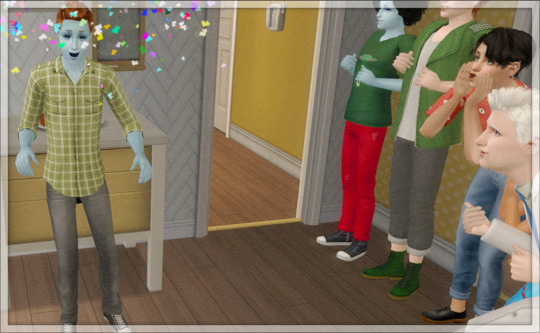
~ Sagittarius 0 / 9 / 7 / 4 / 8
~ Brave / Friendly / Loves the Outdoors / Eco-friendly
~ OTH: Tinkering
~ Favourite colour(s): Black / White
~ Aspiration: Pleasure/ Family
~ Turn-ons/off: +Daydreamer / +Rebellious / -Occult

I'm not sure super-chilled Alexander and studious Agnes are going to have much in common.

Townie teen Tosha Go is much more his cup of tea.

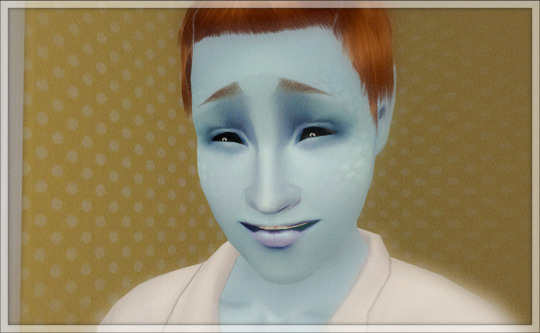
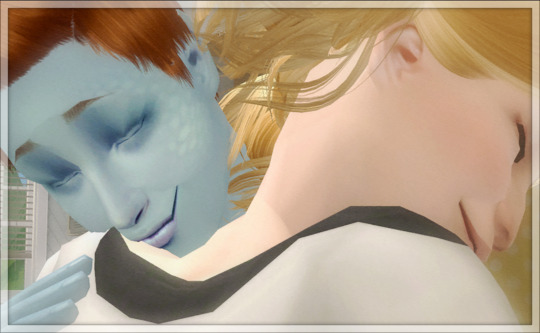
Very much more!
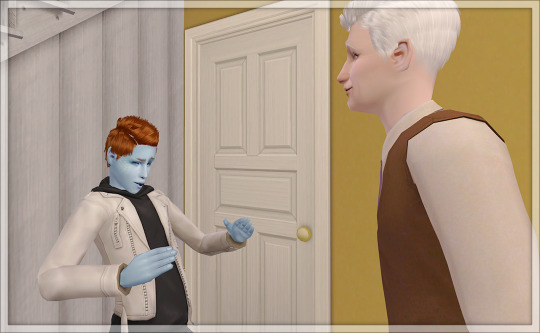
Bragging to his dad about his precocious romantic success - at least Henry is broad-minded enough not to mind a bit of innuendo from his teenage son!
#sims 2#gameplay#merybury#henry tilney#alexander tilney#edward crawford#william bertram#agnes darcy#tosha go#tilney family
16 notes
·
View notes
Text
Taking this out of Faith's notes because it's not fair to clog them up but seriously I feel like Tilney is very often boiled down to charming man who knows about muslin but to me honestly the people who are like "hmm seems like a fake flakey guy" are more right because it's definitely got this underlying cynicism to it which put together with the charm gives a fairly calculating feel. But to me it's like! Imagine your mother dies and your father didn't murder her but when you describe it later you say he as good as killed her by his slow cruelty and disinterest, and you're left with your sister, your older brother who is also AWFUL, and that same father in an old obscure abbey. What do you do? a. you stop really liking or trusting many people because 2/3 of the people you're meant to like and trust are awful, and b. you get Really Good at being liked. Because that's going to get you out of that house, and it's also going to, as much as possible, save you when you are still in that house. It's not the ONLY response to an essentially emotionally abusive situation like that, but it is a clear response.
And this also explains why Tilney doesn't seem to take things seriously very often, because making a joke out of everything is also a tried and true way of surviving a life like that. If you laugh at it then it won't hurt you so he laughs at his family and he laughs at the shitty parts of society and at the Thorpes and at everything.
Except Catherine then turns up and she's not calculated, she's the opposite of calculated. She's charming because she's so honest, she runs up and pours out how sorry she is that she didn't make the walk and how much she wanted to and had been whisked away, and she tells it without an inch of propriety and it's impossible to keep being angry with her. She's silly but she's also inexplicable clear-eyed, she sees the unhappiness at Northanger so clearly even if she imagines the source wrong! That's always been so important to me as part of her character that she was RIGHT there WAS something rotten in the state of General Tilney!!! It just wasn't Literal Murder. And I think Tilney sees that and he loves that because it's so different from the twisted nature of his own past and upbringing, because it's true and honest and good and he still strives for those things (because even if his charmingness IS calculated, he still sees young women and their chaperones unhappy and abandoned and immediately steps in! he is still very much kind! I might speculate about how it's possible to live an identity for so long that it becomes true, but in this case that would just be speculation because we don't have enough information so I won't.) And then I think he does come to love Cathy properly with more time and all, but the original attraction I think is how straightforward she is.
And I KNOW this isn't the only interpretation of the characters but it's the one that makes Tilney make sense to me, he's too cynical and slightly bitter to truly be the perfectly kind charming man he makes himself out to be, but he genuinely cares too much to be a fraud. I think the complexities arise from the survival mechanisms he's created which make sense given his background, and how they intersect and interact with the rest of his nature and the outside world.
#northanger abbey#when I tell you I met this man lowkey in the middle of still living with my parents when it was Bad and I thought ough mood
85 notes
·
View notes
Text
( I know I know....I haven't read Mansfield Park)
(argh Lucy and ROBERT! Sorry brain was in stand by)
130 notes
·
View notes
Text
Hypothetical Scenario: You are a married, upperclass woman living in the Regency Era. You live in the same town as all of Jane Austen's male characters (the female characters are not relevant to this scenario). Your sister has sent her daughter to come stay with you as she is now out in society, and therefore looking to be exposed to potential suitors
Context: This is not to say that your niece is a shoe-in for any particular match, but just that you would be most inclined to encourage this one. We'll say that while you and your sister's families are doing well financially, your niece does not have a massive dowry
#cottagecore-raccoon#jane austen#pride and prejudice#sense and sensibility#mansfield park#persuasion#jane austen emma#northanger abbey#tumblr polls#tumblr poll#poll#polls
70 notes
·
View notes
Text
Welcome to Austenland! (Rising Sign)

Aries Rising - Elizabeth Bennet (Pride and Prejudice): Aries Rising individuals are known for their independent spirit, assertiveness, and quick wit. Elizabeth Bennet embodies these traits with her strong-minded nature, confident demeanor, and spirited conversations.
Taurus Rising - Elinor Dashwood (Sense and Sensibility): Taurus Rising individuals are often practical, reliable, and grounded. Elinor Dashwood exemplifies these qualities through her sensible and level-headed approach to life's challenges, as well as her steadfast loyalty to her family.
Gemini Rising - Emma Woodhouse (Emma): Gemini Rising individuals are known for their wit, adaptability, and sociability. Emma Woodhouse reflects these traits with her lively personality, love for matchmaking and socializing, and her ability to engage in clever and animated conversations.

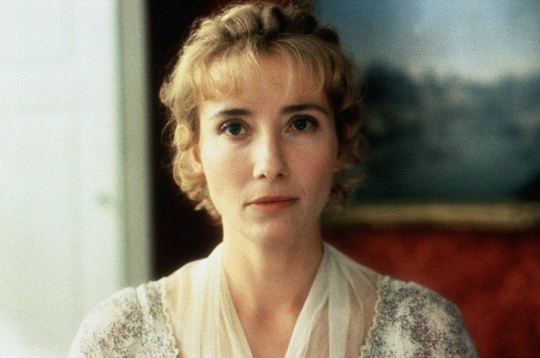

Cancer Rising - Fanny Price (Mansfield Park): Cancer Rising individuals are often nurturing, sensitive, and have a strong sense of family and home. Fanny Price embodies these qualities with her compassionate nature, deep emotional connection to her loved ones, and her appreciation for a stable and secure home environment.
Leo Rising - Catherine Morland (Northanger Abbey): Leo Rising individuals are charismatic, confident, and have a flair for the dramatic. Catherine Morland showcases these traits through her vivacious imagination, natural charm, and her ability to captivate others with her storytelling.
Virgo Rising - Anne Elliot (Persuasion): Virgo Rising individuals are typically detail-oriented, practical, and possess a keen eye for perfection. Anne Elliot reflects these traits through her conscientious nature, careful decision-making, and her attention to the details of social propriety.

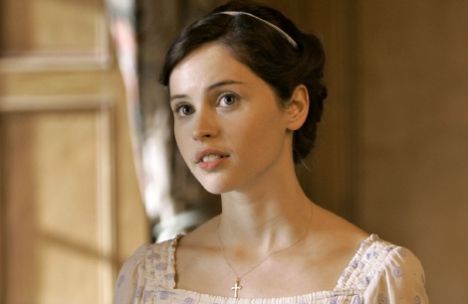
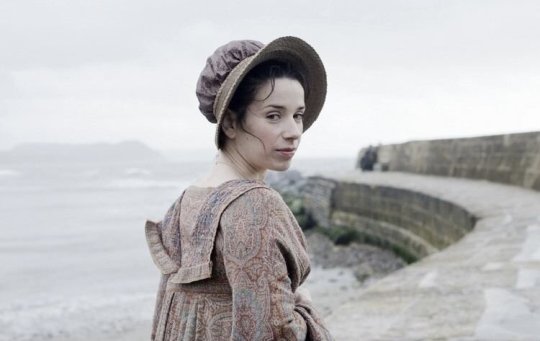
Libra Rising - Jane Bennet (Pride and Prejudice): Libra Rising individuals are known for their diplomacy, charm, and sense of harmony. Jane Bennet embodies these qualities with her graceful demeanor, ability to see the best in others, and her desire for harmonious relationships.
Scorpio Rising - Marianne Dashwood (Sense and Sensibility): Scorpio Rising individuals are often intense, passionate, and have a deep emotional nature. Marianne Dashwood reflects these traits through her romantic ideals, emotional depth, and her ability to experience life's highs and lows with great intensity.
Sagittarius Rising - Mr. Knightley (Emma): Sagittarius Rising individuals are adventurous, open-minded, and have a love for exploration. Mr. Knightley embodies these traits with his well-traveled background, broad perspective on life, and his willingness to challenge Emma's misguided judgments.
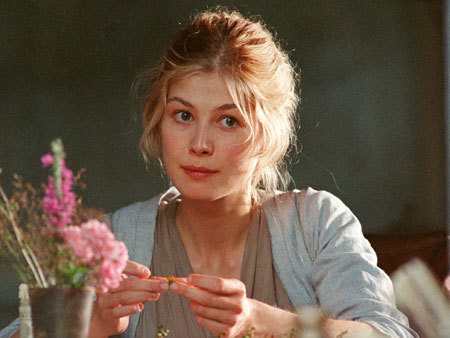

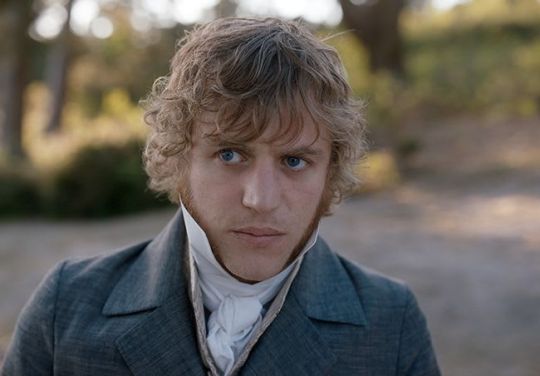
Capricorn Rising - Eleanor Tilney (Northanger Abbey): Capricorn Rising individuals are often disciplined, responsible, and possess a strong sense of duty. Eleanor Tilney showcases these traits with her composed demeanor, practical approach to life, and her commitment to fulfilling her societal obligations.
Aquarius Rising - Colonel Brandon (Sense and Sensibility): Aquarius Rising individuals are typically independent, unconventional, and possess a unique perspective on the world. Colonel Brandon reflects these traits through his quiet strength, intellectual nature, and his ability to challenge societal norms.
Pisces Rising - Anne de Bourgh (Pride and Prejudice): Pisces Rising individuals are often dreamy, sensitive, and have a gentle disposition. Anne de Bourgh embodies these traits with her reserved and ethereal nature, delicate health, and her tendency to withdraw from social interactions.
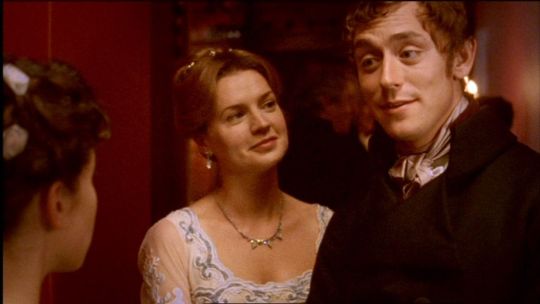


Please note that the associations provided are based on general character traits and archetypes associated with each rising sign. Individual variations and interpretations can exist within each rising sign, and characters in Jane Austen's novels are complex and multifaceted, embodying various qualities beyond their rising sign traits.
Stay tune for more astro posts.
xoxo
J.
#astro posts#astrology posts#astro community#horoscope#astrology#astrology notes#astro placements#astro notes#astrology community#birth chart#rising sign#jane austen#aries rising#taurus rising#gemini rising#cancer rising#leo rising#virgo rising#scorpio rising#capricorn rising#sagittarius rising#pisces rising#aquarius rising#libra rising#jane bennet#elizabeth bennet#marianne dashwood#elinor dashwood#emma woodhouse#anne elliot
176 notes
·
View notes
Text
Read Northanger Abbey the other day and it is funny on so many levels.
First - imagine, 200 years later, if Twilight has fallen into obscurity but a book satirizing Twilight is still well-known and the source of most of some people’s knowledge of the genre. (Note: Should I read The Mysteries of Udolpho, just out of curiosity?)
Second - I don’t favour modern retellings of Sense and Sensibility or Pride and Prejudice because the plot and characterizations are so fundamentally connected to the time period - to the nature of marriage as an economic arrangement and the lack of options for gentlewomen to earn an independent living - that removing that element to focus just on the romance cuts out something central to the book. (Emma is independently wealthy, which is why a modern ‘retelling’ of the book like Clueless works better than for P&P or S&S.)
Northanger Abbey? Is perfect for a modern retelling. A teenage girl goes on a summer vacation, meets a new bestie, gets a crush, dives into Twilight, becomes convinced on the most flimsy of evidence that her new crush’s family are vampires. The exact nature of General Tilney’s misunderstanding about her can be finessed, and she and Henry don’t marry at the end they just start dating, but everything else works, down to the small details! Deciding which friends you want to hang out with, keeping your commitments to people, the pain of finding out that someone you trusted isn’t trustworthy! Henry Tilney going on a tear about the misuse of ‘literally’ or ‘like’! The main stories and conflicts of the novel fit easily into the present day.
Third - yes, Catherine’s Gothic assumptions and ideas are very funny, but General Tilney makes assumptions that are nearly as ridiculous about her, on just as little evidence, and with the benefit of far more life experience! He decides she’s madly wealthy and assiduously seeks to attract her for his son on the word of one guy - one fratbro no less, that’s not even an anachronism, John Thorpe is a fratbro - and then, when the same guy changes his story to ‘no, she’s practically destitute’, the general, instead of considering that maybe this dude is an unreliable source, immediately takes it as truth instead. Catherine’s credulity is driven by fantasy novels, General Tilney’s by worldliness, but they contrast each other very well!
465 notes
·
View notes
Text
Nobody in any Austen novel is as relentlessly, unredeemably awful as Mrs Norris.
Henry Tilney’s dad is horrible, but he barely has a presence in the novel. John Thorpe is awful but his scope is limited. Mrs Elton is appalling — but she’s more often rude than a bully, and she does love her husband. Same for Edward Ferrars’ family.
Mrs Norris, however, is selfish, sycophantic and bullying in nearly every single chapter of Mansfield Park.
Why?
Why is it important to the story that the Bertrams allow a viper in their nest, for years?
I was trying to imagine a fic in which she’s sent away much earlier, as a way of figuring this out for myself — but I can’t imagine a single legitimate scenario in which Tom, Edmund or Lady Bertram bestir themselves enough to send her away!
Maybe that’s the point. Mrs Norris is meddling and cruel, especially to Fanny, and she pilfers, and yet nobody in that family can be bothered to do anything at all about it.
They won’t get rid of her any more than they’ll stop Tom from wilding, or Maria from marrying a man she despises, or Edmund from throwing himself at Mary Crawford. They’re each of them utterly self-centered.
The fandom hates Mrs Norris, and yes, she’s awful; but I say the other members of this family are just as bad: because they can stop Mrs Norris — they very easily could send her away — but they don’t bother.
125 notes
·
View notes
Text
Catherine Morland is naive, not dumb.
Catherine Morland is naive, not dumb.
Catherine Morland is naive, not dumb.
Catherine Morland’s problem is not that she’s stupid. It’s that she’s inexperienced. Catherine is a reasonably intelligent girl with a ton of common sense. She is fantastic at examining evidence and coming to conclusions. Her problem is that her logic works with what she already knows of the world, and she doesn’t know a lot. She’s only sixteen! This is her first time leaving home! Of course she’s not going to know a lot! But once she gets more experience, she learns how the world works and she adjusts.
When she first leaves home, she assumes that the world works under the rules she knows of home. She thinks she can work under the assumption that everyone is basically decent and says what they mean, because that’s how the people she knows have acted. She comes from a happy, loving, morally-decent family, and she has no reason to know that the rest of the world isn’t like that. She assumes that Isabella is a good friend because Isabella says she is--but when she gathers enough evidence to the contrary, Catherine is smart enough to realize that Isabella is a terrible person. Now that Catherine has more experience, she has the brains to adjust her expectations of the world.
When Catherine goes to Northanger Abbey, she knows that the whole world isn’t like her home. She’s going to be more suspicious. But the only other world she knows is the one from her Gothic novels--and she just happens to be going to the setting of a Gothic novel. Naturally, her brain is going to examine evidence within a framework of Gothic novel logic. And it gives her a couple of terrifying nights and leads her mildly astray. But she’s not making crazy accusations left and right. Literally the only thing she does is go into one room where she’s not supposed to be. And when she realizes that her logic was wrong, she adjusts her expectations again! The world isn’t like home or like her Gothic novels. She’s not going to be too trusting or too suspicious, but keep her expectations within a reasonable understanding of how the world actually works.
And the thing is, Catherine’s not wrong. General Tilney is a villain! Not a wife-murdering one, but a self-centered, money-grubbing, child-abusing one. Even if her Gothic logic led her to a too-dramatic conclusion, she was sharp enough to notice that something was off in this family. She wasn’t blinded by the General’s rank or money or big house the way plenty of other people in the novel would be. Because Catherine’s not dumb. She’s got good sense! She’s observant! Her growth just comes from learning how to apply her skills properly without being led astray by expectations. She’s gaining wisdom to go along with the intelligence that she already has.
#northanger abbey#jane austen#catherine morland#saw yet another 'cathy's a dumb fangirl' post and had to go off
590 notes
·
View notes